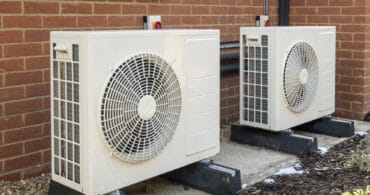Understanding the Basics of Charging for Tenant Damage
Understanding the difference between wear and tear and actual damage is key to determining fair charges. By following the guidelines outlined in this article, you can confidently navigate the process of handling tenant damage and maintain a successful rental property business.
Dealing with tenant damage can be a major concern for landlords. Knowing your rights and responsibilities when it comes to charging for repairs is crucial to protect your investment and maintain a positive landlord-tenant relationship.This guide will walk you through the ins and outs of charging tenants for damage, ensuring you’re equipped to handle any situation that arises.
Understanding the Basics of Charging for Tenant Damage
Most tenants are responsible, but wear and tear and damage are inevitable. As a landlord, it’s crucial to know your rights and what you can charge for. Here’s a breakdown:
- You CAN charge tenants for: Damage caused by negligence or deliberate actions. This can be deducted from their deposit or pursued through small claims court with evidence.
- You CANNOT charge tenants for: Everyday wear and tear, which is a natural part of living in a property.
- You CANNOT charge tenants for: Unfair costs or use accidental damage as an excuse to upgrade items.
Providing Solid Evidence of Damage
To successfully claim deductions or pursue legal action, you need proof:
- Conduct thorough inspections: Use an independent inventory company for unbiased reports with date-stamped photos or videos before and after the tenancy.
- Document everything: Include details about the property’s condition in the tenancy agreement and keep records of all maintenance and damage-related communication.
Wear and Tear vs. Damage: Key Differences
Understanding the difference between wear and tear and damage is crucial:
- Wear and tear: Minor scuffs, worn carpets, fading, and similar issues that occur naturally over time.
- Damage: Stains, burns, pet damage, holes in walls, water damage due to negligence, or similar issues.
Determining Fair Charges for Tenant Damage
Be reasonable and fair when charging for damage:
- Like-for-like replacement: You can only charge for replacing a damaged item with a similar one based on its original value and condition.
- No upgrades: Don’t use tenant damage as an excuse to upgrade items at their expense.
How to Handle Deposit Deductions
Remember, your tenant’s deposit is their money:
- Use a government-backed deposit scheme: All deposits must be protected, and tenants must agree to deductions.
- Dispute resolution: If there’s a disagreement, an independent adjudicator will make the final decision.
- Small claims court: If the deposit doesn’t cover the damage, you can apply to the small claims court.
By following these guidelines, you can ensure a fair and transparent process for handling tenant damage.
Homes2let offers a property management & guaranteed rent service that reduces the landlord burden, with an added benefit…
As a landlord, you have enough to deal with without having deal with deposit claims. So why not hand over to a property management service, but one with a clear added benefit?
The homes2let guaranteed rent scheme guarantees rental payments, even when the property is untenanted, as well as taking all the hassle of property management off your shoulders too.
Interested to discover more? You are welcome to get in touch with our expert team to discover how we can make your life as a landlord more of a breeze.
Related Insights

Unpaid Utility Bills: Who Pays, Landlord or Tenant?
A common concern amongst landlords is what happens if a tenant moves out leaving unpaid utility bills. Whether it falls to the landlord to settle the debts, or it remains the responsibility of the tenant, is precisely what we are setting out to provide clarity on in this post.

Updated Advice for Landlords on Right to Rent Checks 2022
Right to Rent checks are set to face reforms at the start of the new tax year on 6th April 2022, with 5th April marking the end of the COVID-related temporary adjustments which allowed checks to be carried out virtually. From 6th April onwards, there will be a new permanent online solution which will allow right to rent checks to continue to be carried out remotely, for all nationalities, and with enhanced security.

Heat Source Pump Grants Coming Soon for Landlords
As confirmed in the recent Autumn 2021 Budget, landlords have been included in the government’s heat source pump grant scheme, which will provide access to grants of £5,000 to help replace gas boilers with low-carbon air or ground source heat pumps from April 2022.







